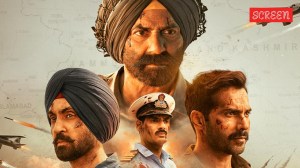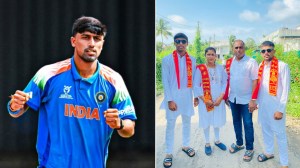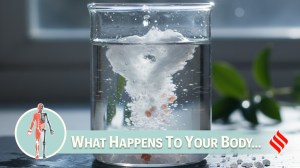Helmets 8212; heading for safety
I would like to join the battle like the scores rallying in defence and against the use of helmets. I am pitching in out of sheer concern...

I would like to join the battle like the scores rallying in defence and against the use of helmets. I am pitching in out of sheer concern for fellow two-wheeler riders, many of whom often realise their mistake when it is too late. From being an inveterate helmet-hater, I have graduated to a helmet-obsessed rider. For, in me, was this deep-seated belief that wearing a helmet dented my efforts to look presentable. The very mention of a helmet8217; made my hair stand on end. Donning one, and taking it off after a ride meant putting dishevelled locks into place, a task in itself, especially with the kind of hairstyle I sport. Secondly, my father had begun losing hair while he was barely 22. A few years later, a few strands remained on his head. This played on my mind and I thought the hereditary factor would cut its swathe through me.
But, these arguments against the use of helmets, conveniently touted by helmet-haters, no longer bother me. Not after what I have seen and lived through. In the process, the helmet obsession has burgeoned as I experience and get to hear about people who could have survived and not hurled their families into a life-long trauma by shunning the helmet. I specifically narrate two incidents and hope they will make helmet-haters see the danger of avoiding the protective headgear.
Eight months ago, my schoolmate, 30-year-old Sunil Jadhav, was found lying on the road with blood oozing from his head. He was probably rammed, from behind, by an unidentified vehicle. Sans a helmet, he was returning from Bhosari astride his scooter. Sunil was taken to a hospital in Pimpri and then shifted to another in the city. After spending over four months in hospitals and undergoing three operations with two more in the pipeline, Sunil has been brought home. Four months have passed by, but Sunil has not spoken a word. He desperately mumbles something which nobody can fathom. He cannot leave his bed. He tries to move his hands and faintly8217; recognises people who come to visit him.The accident has severely damaged his brain. The doctors have reportedly told his parents that it will take him another year and half to regain8217; his voice.
Besides all the running around and spending sleepless nights, Sunil8217;s parents have spent over Rs. 3 lakh for his treatment. His father, looking forward to a peaceful life after retirement, has had to withdraw his entire savings. Somebody has to be around Sunil all the time to make sense of what he mumbles.
Whenever I visit him, I can see the pain and anxiety on his parents8217; face 8211; the pain of their world collapsing in no time and the added anxiety of when their son would be up and about. Sunil8217;s wife has grown weak, looks pale and lost. Everybody is clutching on to hope while enduring the shock.
Sunil8217;s story is not created out of thin air just to press for the use of helmets. See for yourself the life Sunil and family are leading. Surely, after looking at him, nobody would harbour the thought of shirking the helmet.
The second incident I witnessed has further strengthened my conviction to wear the helmet, even when travelling small distances. At the Nasik Phata signal, a fortnight ago, a motorcyclist zipped past only to run into a bus taking a right turn. As soon as the two-wheeler rammed into the bus parts of the vehicle flew all over. The rider was tossed high up in the air 8212; at least six feet high. He landed flat on his face and remained still. When someone from the crowd turned him over, his face was a mass of flesh and blood. He was panting heavily. He was taken to the Yeshwantrao Chavan Memorial Hospital in Pimpri but declared dead-on-arrival.
Within minutes, a life was lost. He was barely 35 and, as I found out, well-placed in life. If he had worn a helmet, he would have survived. Firstly, he was bare-headed and the moment he hit the metal body of the bus he must have fallen unconscious. Then the double impact as he landed flat on his face.
The point is 8211; not only is the victim putting himself at risk by avoiding the helmet, but is ensuring that, along with him, his family including his parents, wife and children, become the aggrieved party. This is the trauma he bequeaths to them. It is deliberate. The rider deliberately risks his life by not sporting the helmet.But this does not mean if you are wearing a helmet, you are safe and sound. There is no guarantee of life with the kind of roads laid out by our corporations and cantonment boards.
But there is every chance that if your head remains intact, you have a chance of survival. That the head is the most sensitive part can be gauged from what the doctors told Sunil8217;s parents. 8220;Even if you had brought him with his hands and limbs severed, we would have stitched them back. But when it comes to the head, nothing can be done.8221; In case of a head injury, the chances of survival are very slim. Even if you survive, you may turn into a vegetable 8211; like Sunil.
- 01
- 02
- 03
- 04
- 05






























